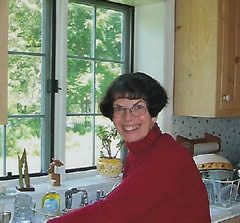My Approach
I have always wanted to be a writer. For the first half of my life, though, I have been a teacher. Being a teacher of literature, I read, studied and discussed the great canon of writers including those of all colors and ethnicities from around the globe, including women. I was fortunate to come of age during the time of the people’s movements, so I witnessed social change first hand with Civil Rights, women’s and gay rights. The literature that emerged from those movements showed me the relationship of literature to life, how writers can be part of social change. Those writers expanded the literary canon, poets like Marge Piercy, Adrienne Rich, and Audre Lorde; fiction writers like Doris Lessing, Alice Walker, Bharti Mukherjee, Edwige Danticat, and Bessie Head; dramatists like ntozake shnage and Anna Deavere Smith, and memoirists like Ann Moody and Agnes Smedley.
I was fortunate, too, to see my own Jewish culture become reshaped by feminism. Jewish women’s voices were being re-discovered, the secular Jewish voices of Anzia Yezierska, Muriel Rukeyser, and Tillie Olsen, progressive Jewish women who wanted their writings to make a difference in the lives of women. The voice of short fiction author Grace Paley empowered me the most to write about my Jewish family with acceptance and love: their way of speaking―idiosyncratic, conversational; their way of life―working-class, upwardly mobile; and especially their women’s networks―mothers, daughters, aunts, often “making it on their own,” cleverly navigating the waters of sex, money, and aging.
My teachers were at first the authors I read and the students I taught. When I “retired” from full-time teaching, and from the necessity of writing academic books, I gave myself permission to learn from writers themselves in order to write my family story in poetry and fiction. I realized that the tragic truth of the trauma I had experienced in childhood had been percolating, unwritten, my entire life. That unfully examined trauma had been affecting me in ways I had only suspected. Writing is a path of discovery. I took many, many workshops on Cape Cod, Massachusetts and in San Miguel de Allende, Mexico, where talented writers and mentors helped me discover the hot coals of pain still burning under my layers of denial. I thank my life partner, artist/author Milton Teichman; my first private writing coach, poet/novelist Kathleen Spivack, and author/editor Stephen Joseph, for helping me hone my raw memoir into a novel that freed me from simply following facts.

